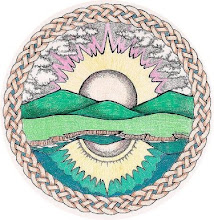Or how the contrasting of Dialogue and Debate turned potential antagonists back into traveling companions.
It’s been a bit challenging, fun and, already, certainly interesting for our developing Coffee House Conversations by Conference Call forum participants, Jack and myself to delve more deeply than previously into an understanding of how principles that, if observed, can empower us, collectively, to, at least, come close to what we have come to call “awe,” the definitive antithesis of polarization and conflict.
We borrowed the notion of aspiring for “awe” in our human affairs from New Horizons recently deceased community development mentor, Murat Yagan, as described in his last two books, Ahmsta Kebzeh: The Universal Science of Awe, Volumes I and II.
While Murat’s treatises introduce us to principles and practices that guide us to seek the bounty of awe from a perspective that primarily merges (hard) science and mysticism, “old” New Horizons placed us, originally, on this path based on foundations grounded in psychology and sociology. Well, I guess, these are still compatible and, the latter two, psychology and sociology, even allowably considered science, of sorts, on their own, albeit “soft” sciences.
Here are the principles we have settled on for the adventure to “awe” we are presently creating. Building on these, our last Coffee House Conversation by Conference Call was a lively and delicious experience, I believe, as we tried our hand at mindfully applying them. Please do join us as we work together and continue to strive for this pinnacle that we call “awe.” It is a most heartening respite in the midst of all the upheaval and chaos typically surrounding us.
For future reference, you can also find these principles listed at this link
Contrasting Dialogue and Debate
Courtesy of Everyday Democracy
Dialogue is collaborative: two or more sides work together toward a common understanding.
Debate is oppositional: two sides oppose each other and attempt to prove each other wrong.
In dialogue, finding common ground is the goal.
In debate, winning is the goal.
In dialogue, one listens to the other side(s) in order to understand, find meaning, and find agreement.
In debate, one listens to the other side, in order to find flaws and to counter its arguments.
Dialogue enlarges and possibly changes a participant’s point of view.
Debate affirms a participant’s own point of view.
Dialogue reveals assumptions for reevaluation.
Debate defends critique of the other position.
Dialogue causes introspection on one’s own position.
Debate causes critique of the other position.
Dialogue opens the possibility of reaching a better solution than any of the original solutions.
Debate defends one’s own positions as the best solution and excludes other solutions.
Dialogue creates an open-minded attitude: an openness to being wrong and an openness to change.
Debate creates a closed-minded attitude, a determination to be right.
In dialogue, one submits one’s best thinking, knowing that other people’s reflections will help improve it rather than destroy it.
In debate, one submits one’s best thinking and defends it against the challenge to show that it is right.
Dialogue calls for temporarily suspending one’s beliefs.
Debate calls for investing wholeheartedly in one’s beliefs.
In dialogue, one searches for basic agreements.
In debate, one searches for glaring differences.
In dialogue, one searches for strengths in the other positions.
In debate, one searches for flaws and weaknesses in the other positions.




No comments:
Post a Comment